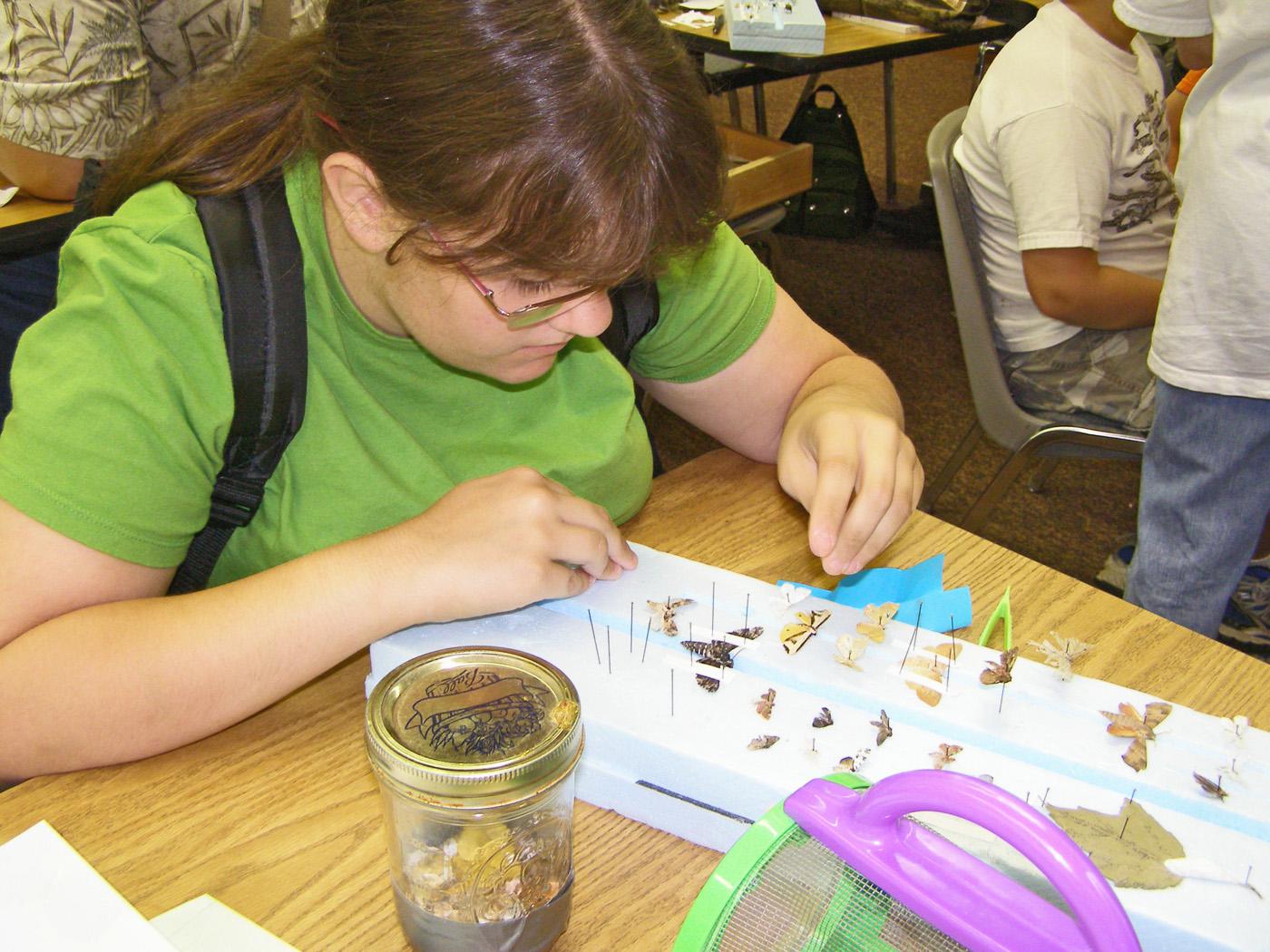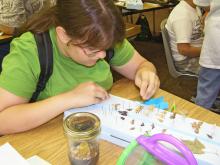Information Possibly Outdated
The information presented on this page was originally released on April 16, 2009. It may not be outdated, but please search our site for more current information. If you plan to quote or reference this information in a publication, please check with the Extension specialist or author before proceeding.
Insect-plant exploration awaits summer campers
MISSISSIPPI STATE – Explorers ages 10 and up who want to learn more about the relationship between insects and plants should plan to attend Mississippi State University’s annual 4-H Entomology and Horticulture Camp this summer.
This year’s camp is June 14-18 at MSU. Hosting the event are the Department of Entomology and Plant Pathology, the Department of Wildlife and Fisheries, and the Noxubee National Wildlife Refuge.
Campers will participate in outdoor activities at the refuge and at the Osborn Black Prairie site. They also will tour the Mississippi Entomological Museum, the electron microscope laboratory and other science facilities on campus.
“We rotate the camp sites within the state to give children the best educational experience possible,” said camp director John Guyton, associate professor of wildlife and fisheries. “Many parents, naturalists and teachers also participate because it is an intergenerational event.”
This year’s camp will emphasize the connection between insects, plants, soil and climate as these factors influence insect diversity, Guyton said. Many plants provide food and shelter for insects, and some insects are food for some plants, too. Understanding this relationship helps campers learn how ecological systems work.
“Several Extension horticulturists helped us develop the insect-plant interaction hike that campers really enjoy,” Guyton said. “We take kids on these excursions, and they come back with an incredible amount of plant material showing insect damage.”
Interdisciplinary camp staff will lead educational sessions and outings into natural surroundings to present a well-rounded view of the environment. Some sessions have included beekeeping, insect photography and night collection of insect specimens with black light.
“MSU provides campers with a setting for residential bug camp, which means they have an opportunity to spend the day and night collecting insects because we offer overnight accommodations,” Guyton said.
Children must be at least 10 years old to attend. The experience often motivates many campers to come back the following year and to choose one of the biological sciences as a college major.
“Many youth go back to school and write a research paper based on their experiences at camp, and others create entomology projects for science fairs,” Guyton said. “Some of the adult campers publish articles in professional journals, and those who teach get project ideas.”
Registration for camp is online at http://www.cfr.msstate.edu/wildlife. Click “Intergenerational Summer Camps” and select “Basic Insect and Plant Ecology Camp” when registering.
“We promise to keep the black lights on if you register in time,” Guyton said.
Cost of the camp is $275 per person, or $225 each for parents and children attending together. Enrollment is limited to 25 people.
Contact Guyton at (662) 325-3482 or [email protected] for more information.
Writer: Patti Drapala



